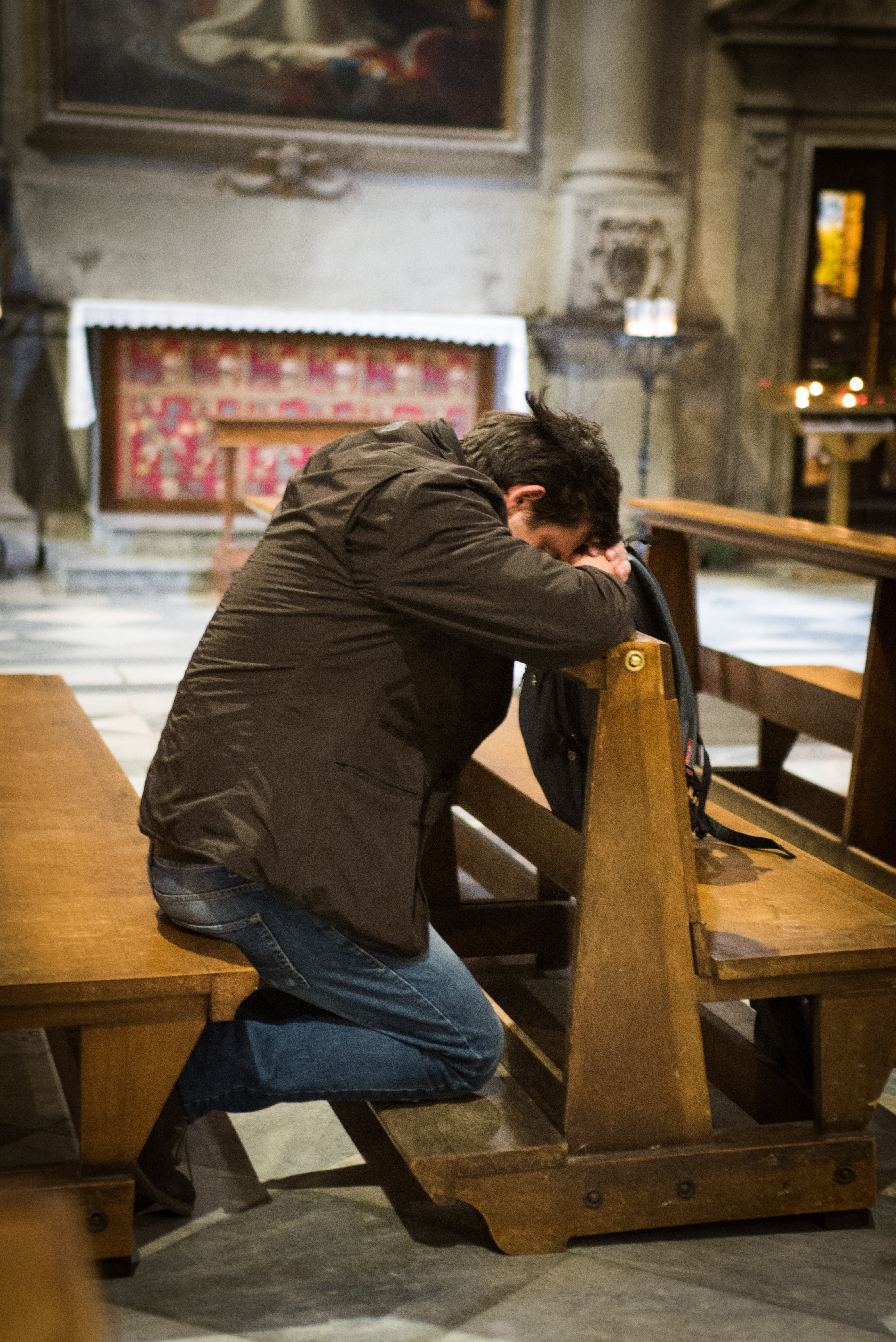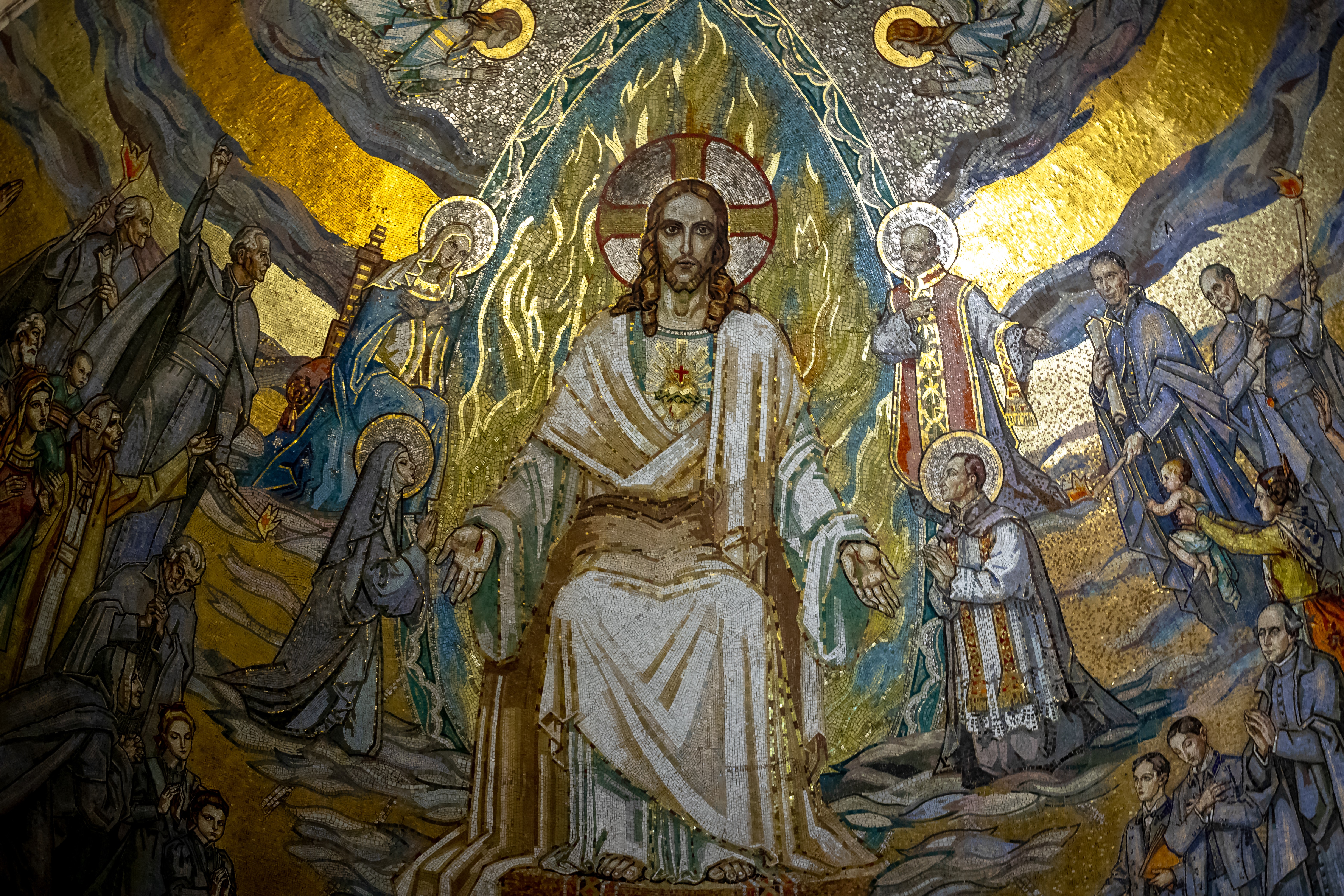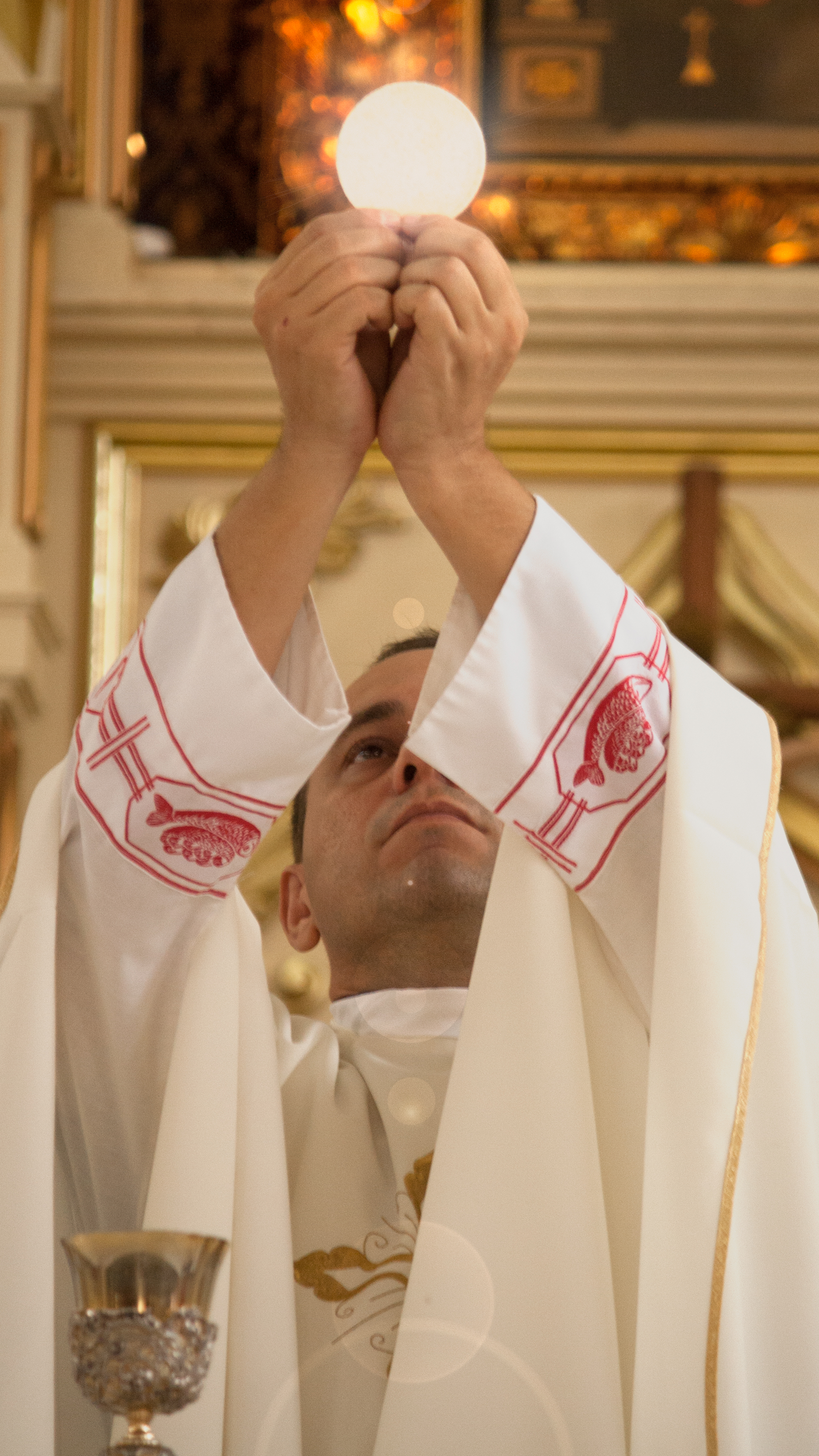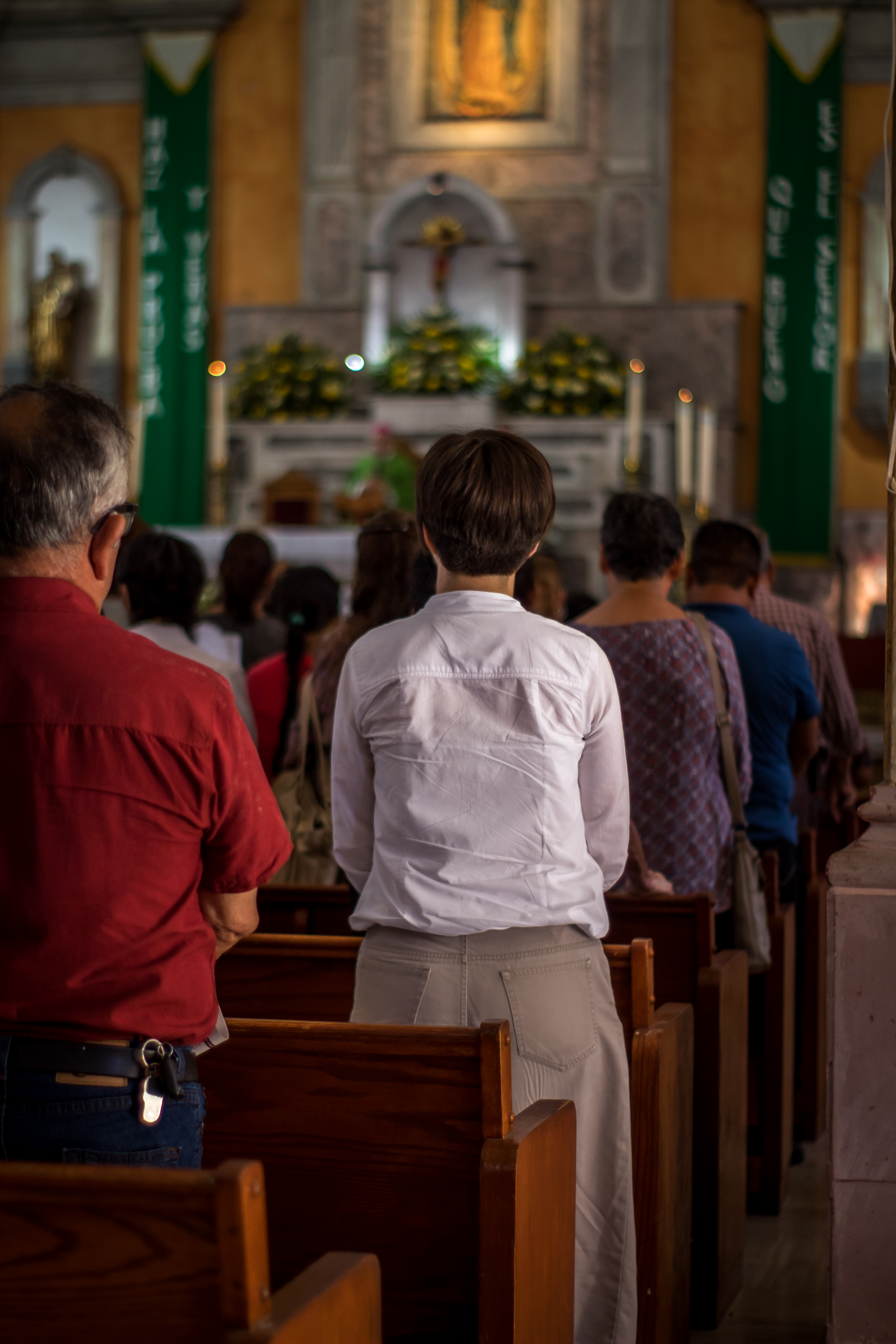Recently, a young Catholic woman who works in a local restaurant shared with me how off-putting it is when other “devout” Catholics come into her place of employment and behave rudely. Their grumpy demeanor and frequent complaining strike a loud, discordant note especially when juxtaposed to the beautiful Miraculous Medal or crucifix glinting on a chain around their necks. If we Christians are not virtuous in everyday interactions, people notice, and we can inadvertently alienate others from Christ. How much more so when our sins are grave!
Today’s First Reading and Responsorial Psalm highlight the fact that Gospel living requires virtue. The more conformed we are to Christ, the more we can impact the world, not only by service to God in His Church, but in communicating His love and goodness through commonplace interactions with others.
The saints assure us that praying daily will help us to grow in holiness and become more like the Lord we profess to serve, but evidently certain kinds of prayer are more efficacious than others. St. Teresa of Avila once said, “I would not want any other prayer than that which makes the virtues grow in me.” We might ask ourselves what “virtue growing” prayer looks like. St. Teresa, a true lover of Jesus and expert in prayer, has advice and insight that can help us to develop the kind of prayer life that leads to holiness and virtue.
St. Teresa recommended the kind of prayer that goes beyond rote prayer. She called it mental prayer saying, “Mental prayer in my opinion is nothing else than an intimate sharing between friends; it means taking time frequently to be alone with Him who we know loves us.” It is by spending time with Christ every day, and especially by reading about and meditating on the life of Christ in the Gospels, that we are able to understand how far we are from perfection. When we take the time and effort to encounter Christ in prayer, He will become our rabbi and instruct us in virtue. In the words of St. Teresa, “He will teach us, for in beholding his life we find that he is the best example.”
The world is watching to see if Christians are people of virtue. The more frequent or serious the sin, the more damage we do to the Gospel message. Heartbreakingly, our bad behavior can turn people off to the Catholic Church instead of seeing it as the means instituted by Christ to lead people to salvation. Service to God’s people, whether by a priest, deacon, religious, or lay person, is effective when we are people of daily prayer; the kind of prayer that brings us into intimate contact with Christ and the supernatural power of the Holy Spirit. Prayer, virtue, and effective service to God—it’s a package deal.
“I look to the faithful of the land to sit at my side. Whoever follows the way of integrity is the one to enter my service.” (Ps 101:6)
Recientemente, una joven católica que trabaja en un restaurante local compartió conmigo lo desagradable que es cuando otros católicos “devotos” entran en su lugar de trabajo y se comportan de manera grosera. Su comportamiento gruñón y sus frecuentes quejas dan una nota fuerte y discordante, especialmente cuando se yuxtaponen a la hermosa Medalla Milagrosa o el crucifijo que brilla en una cadena alrededor de sus cuellos. Si nosotros, los cristianos, no somos virtuosos en las interacciones cotidianas, la gente lo notará y, sin darnos cuenta, podemos alejar a otros de Cristo. ¡Cuánto más cuando nuestros pecados son graves!
La Primera Lectura y el Salmo Responsorial de hoy destacan el hecho de que vivir el Evangelio requiere virtud. Cuanto más conformados estemos a Cristo, más podremos impactar al mundo, no solo por el servicio a Dios en Su Iglesia, sino también al comunicar Su amor y bondad a través de interacciones comunes con los demás.
Los santos nos aseguran que orar diariamente nos ayudará a crecer en santidad y llegar a ser más como el Señor al que profesamos servir, pero evidentemente ciertos tipos de oración son más eficaces que otros. Santa Teresa de Ávila dijo una vez: “No quisiera otra oración que la que hace crecer en mí las virtudes”. Podríamos preguntarnos cómo es la oración de “crecer en la virtud”. Santa Teresa, una verdadera amante de Jesús y experta en la oración, tiene consejos y perspicacia que pueden ayudarnos a desarrollar el tipo de vida de oración que conduce a la santidad y la virtud.
Santa Teresa recomendó el tipo de oración que va más allá de la oración de memoria. Ella lo llamó oración mental diciendo: “La oración mental en mi opinión no es más que un compartir íntimo entre amigos; significa tomar tiempo frecuentemente para estar a solas con Aquel que sabemos que nos ama”. Es al pasar tiempo con Cristo todos los días, y especialmente al leer y meditar sobre la vida de Cristo en los Evangelios, que podemos comprender cuán lejos estamos de la perfección. Cuando tomamos el tiempo y hacemos el esfuerzo de encontrarnos con Cristo en oración, Él se convertirá en nuestro rabino y nos instruirá en la virtud. En palabras de Santa Teresa, “Él nos enseñará, porque al contemplar su vida encontramos que Él es el mejor ejemplo”.
El mundo está mirando para ver si los cristianos son personas virtuosas. Cuanto más frecuente o grave sea el pecado, más daño le hacemos al mensaje del Evangelio. Desafortunadamente, nuestro mal comportamiento puede alejar a la gente de la Iglesia Católica en lugar de verla como el medio instituido por Cristo para llevar a la gente a la salvación. El servicio al pueblo de Dios, ya sea por parte de un sacerdote, diácono, religioso o laico, es eficaz cuando somos personas de oración diaria; el tipo de oración que nos pone en contacto íntimo con Cristo y el poder sobrenatural del Espíritu Santo. La oración, la virtud y el servicio efectivo a Dios son un conjunto necesario.
“Mis ojos pondré en los fieles de la tierra, para que estén conmigo; El que ande en el camino de la perfección, éste me servirá.” (Sal 101,6)
 A lover of Jesus Christ, a wife, and a mother of five, Christine is the author of Everyday Heroism: 28 Daily Reflections on the Little Way of Motherhood. She is a graduate of Franciscan University, an instructor for the Institute for Excellence in Writing, and an experienced catechist. Thrilled to have recently become grandparents, she and her husband currently live in Upstate, NY. Visit her author webpage at christinehanus.com
A lover of Jesus Christ, a wife, and a mother of five, Christine is the author of Everyday Heroism: 28 Daily Reflections on the Little Way of Motherhood. She is a graduate of Franciscan University, an instructor for the Institute for Excellence in Writing, and an experienced catechist. Thrilled to have recently become grandparents, she and her husband currently live in Upstate, NY. Visit her author webpage at christinehanus.com
Feature Image Credit: Gift Habeshaw, unsplash.com/photos/UyKleFo2g_M












